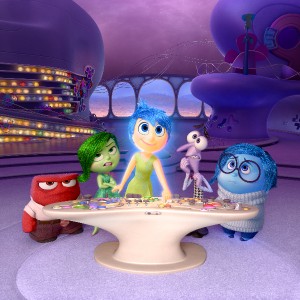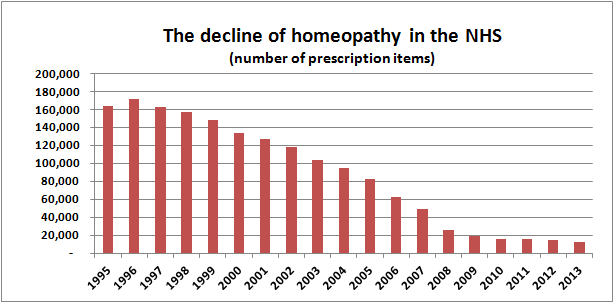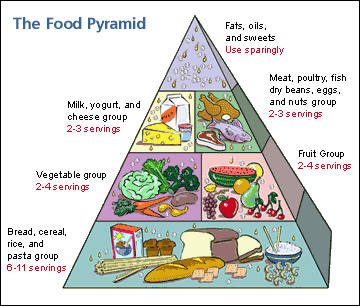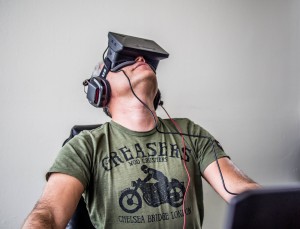Jun
30
2015
 So-called “whiffy wheat” was genetically modified to release a pheromone that repels aphids. The obvious purpose of this modification was to reduce pests without the need for insecticides, and thereby reduce insecticide use.
So-called “whiffy wheat” was genetically modified to release a pheromone that repels aphids. The obvious purpose of this modification was to reduce pests without the need for insecticides, and thereby reduce insecticide use.
The trait worked well in the lab. The wheat released sufficient amounts of a warning pheromone that aphids release when attacked. The pheromone both warns aphids to stay away, and also attracts predators, such as a parasitic wasp. The pheromone was derived from the peppermint plant.
The laboratory success meant the wheat was ready for field trials where the GM crop is put to the test in close to real world conditions. The results of those field trials were just published, and unfortunately they showed that the new trait essentially didn’t work – the aphids were not significantly decreased compared to controls, nor was yield increased.
Continue Reading »
Jun
29
2015
 A recent article at the Atlantic by Jennie Rothenberg Gritzi demonstrates just how thoroughly the alternative medicine movement (I will refer to this as CAM) has been able to influence the cultural conversation over the practice of medicine. This is great evidence of how successful a persistent marketing campaign can be.
A recent article at the Atlantic by Jennie Rothenberg Gritzi demonstrates just how thoroughly the alternative medicine movement (I will refer to this as CAM) has been able to influence the cultural conversation over the practice of medicine. This is great evidence of how successful a persistent marketing campaign can be.
Gritzi relates early on in the article that she was predisposed to CAM from a young age, which might explain her journalistic failures in this piece. She writes:
After visiting the NIH center and talking to leading integrative physicians, I can say pretty definitively that integrative health is not just another name for alternative medicine.
Continue Reading »
Jun
26
2015
 The Discovery Institute, in my opinion, is an intellectually dishonest propaganda organization trying desperately (and failing) to disguise itself as a legitimate scientific group. They promote the unscientific notion of intelligent design, which itself is just “scientific creationism” in disguise.
The Discovery Institute, in my opinion, is an intellectually dishonest propaganda organization trying desperately (and failing) to disguise itself as a legitimate scientific group. They promote the unscientific notion of intelligent design, which itself is just “scientific creationism” in disguise.
Because they dishonestly pursue an ideological agenda, they are the epitome of the phenomenon of allowing a narrative to control the interpretation and selection of facts and arguments, a process known as motivated reasoning. In the case of the Disco-Tute their narrative is that evolution is bad, and they therefore spend the bulk of their time trashing evolution in every way possible. Sometimes this leads to absurd positions, even by the baseline absurd standards by which the Disco-Tute lives.
A recent article on their blog, Evolution News and Views, hits what is perhaps a new low watermark, even for them: In Explaining Dylann Roof’s Inspiration, the Media Ignore Ties to Evolutionary Racism. That’s right – author David Klinghoffer is trying to exploit the horrible tragedy in South Carolina in order to score imaginary points against evolution. For quick background, Roof (allegedly) is a horrible young white supremacist racist who thought he needed to go into a black church in South Carolina and start shooting people.
Continue Reading »
Jun
25
2015
 I have watched from the sidelines the recent controversy over the comments made by Nobel Laureate, Tim Hunt. Here is what sparked the controversy:
I have watched from the sidelines the recent controversy over the comments made by Nobel Laureate, Tim Hunt. Here is what sparked the controversy:
The British scientist told delegates at the World Conference of Science Journalists in South Korea that when women work alongside men in labs, three things happen: “you fall in love with them, they fall in love with you, and when you criticize them, they cry.” He then went on to suggest that perhaps the best way to solve this problem is to have sex-segregated labs.
Hunt was widely criticized for his comments, which were interpreted (quite reasonably) as sexist. Within days he was pressured to resign from his honorary post at University College London. In response to that others came to his defense, including 8 Nobel laurates and Richard Dawkins, who characterized the reaction as a “witch hunt.” Others, like Brian Cox, did not go that far but did say the response was “disproportionate.”
This has led to a round of criticizing those defending Tim Hunt. And now the Tim Hunt camp has responded further, saying that Hunt was taken out of context, that he followed up those words with, “Now seriously, women are needed in science,” indicating the whole thing was just a bad joke. That claim, however, is disputed, and there is no objective record to resolve the dispute.
Continue Reading »
Jun
23
2015
 This is yet another example of why making decisions based upon ideology, or what feels right, instead of logic and evidence is a terrible idea. There is currently a market for adult consumers of human breast milk, which is being sold as a “superfood” that can treat numerous conditions and optimize athletic performance. These claims are, of course, nonsense. The practice is also risky. A new report in the Journal of the Royal Society of Medicine details the problems.
This is yet another example of why making decisions based upon ideology, or what feels right, instead of logic and evidence is a terrible idea. There is currently a market for adult consumers of human breast milk, which is being sold as a “superfood” that can treat numerous conditions and optimize athletic performance. These claims are, of course, nonsense. The practice is also risky. A new report in the Journal of the Royal Society of Medicine details the problems.
A market for human breast milk (HBM) exists as a means of providing HBM for infants whose mother cannot produce. A recent survey finds that most HBM exchange happens offline, but facilitated through online sites. There is also a lot of overlap between donors and recipients, with women being donors at one time and recipients at others. This infrastructure exists to provide HBM for infants, and there is good evidence that HBM is the optimal food for infants.
A parallel market is emerging, however, for HBM intended for adult consumers based upon the idea that HBM is a natural superfood. Both of these concepts, however, are problematic. I have discussed many times how the term “natural” is used as a marketing ploy, but has no real meaning and is not rationally regulated. Whether or not a substance occurs in nature is irrelevant to its toxic or health effects, but it is meant to feel good. The idea of “natural” has a health halo, but does not mean anything specific, and is therefore ideal for marketing.
Continue Reading »
Jun
22
2015
 I recently saw the new Pixar movie, Inside Out, which follows the inner workings of a young girl’s mind. (I will be discussing the premise, rather than the plot, of the movie so only mild spoilers.) As a neuroscientist of course I was interested in the metaphors that the writers chose to represent the workings of the human brain. They made many good choices, but there was also some interesting elements missing or misplaced.
I recently saw the new Pixar movie, Inside Out, which follows the inner workings of a young girl’s mind. (I will be discussing the premise, rather than the plot, of the movie so only mild spoilers.) As a neuroscientist of course I was interested in the metaphors that the writers chose to represent the workings of the human brain. They made many good choices, but there was also some interesting elements missing or misplaced.
Of course, I understand this is a movie. The writers made choices to make the movie enjoyable to children as well as adults, which means they likely made some choices to keep things simple. Other choices may have been driven by the needs of the plot, and still others simply to be cute and entertaining. I get it – this wasn’t a neurology lesson. For example, IMDb notes:
“The writers considered up to 27 different emotions, but settled on five (Joy, Sadness, Disgust, Fear and Anger) to make it less complicated. Some of the major emotions that ended up being cut included Surprise, Pride, and Trust.”
Central Command
Continue Reading »
Jun
19
2015

Several years ago, during a lecture on Science-Based Medicine, I noted that if there were one medical pseudoscience that was vulnerable to extinction it was homeopathy. Homeopathy is perhaps the most obviously absurd medical pseudoscience. It is also widely studied, and has been clearly shown to not work. Further, there is a huge gap in the public understanding of what homeopathy is; it therefore seems plausible that the popularity of homeopathy can take a huge hit just by telling the public what it actually is.
Further, homeopathy is in a precarious regulatory position. Homeopathic products are presented and regulated as drugs, but clearly they are not, and they are also not supplements, herbal drugs, nutrition-based, or natural products. They are simply fraudulent drugs riding a wave of ignorance.
In the last few years homeopathy has had a rough time. While the industry is still growing, there are signs of clear trouble on the horizon. Let’s review:
Some Background
Homeopathy is a 200 year old pre-scientific system of medicine based upon magical thinking. It is mostly based on two notions, the first of which is that like cures like. In other words, a substance that causes a symptom can cure that symptom in extremely low doses. There is no scientific basis for this, despite the desperate attempts by homeopaths to invoke vaccine-like analogies, or their new favorite, hormesis.
Continue Reading »
Jun
18
2015
 The NY Post recently published an article The miracle that cured my son’s autism was in our kitchen. It is a horrible piece of science journalism published in the “Living” section of the paper by a writer, Mackenzie Dawson, who writes about reality TV and how to organize your closet when she is not mangling science. The piece stumbles from trope to trope as it follows a tired formula.
The NY Post recently published an article The miracle that cured my son’s autism was in our kitchen. It is a horrible piece of science journalism published in the “Living” section of the paper by a writer, Mackenzie Dawson, who writes about reality TV and how to organize your closet when she is not mangling science. The piece stumbles from trope to trope as it follows a tired formula.
First open up with a heart-warming anecdote of a child “cured” by a plucky parent who would just not give up. Let a bunch of cranks explain how it all works, and sneak in one paragraph of token skepticism that you then immediately contradict. Then finish off with flourish of how amazing your star anecdote is doing. Dawson gives us an added bonus, a cherry-picked study to create the illusion she did some actual journalism.
The story is an old one – dietary restrictions to treat autism. Dawson writes:
“I remember thinking, ‘Oh my God. What are we going to do?’ ” Levin recalls. “Everyone knew autism was a lifelong disorder and couldn’t be cured.”
Except that in Ben’s case, it could be. And it was.
Continue Reading »
Jun
16
2015
 Can you recall everything you ate yesterday, including those little snacks you snuck, with reasonably accurate estimates of amounts? How about two days ago? Most people, it turns out, have a hard time recalling with good fidelity their recent food intake, or they have a hard time reporting it accurately not only because of the fallibility of memory but because of biases and denial.
Can you recall everything you ate yesterday, including those little snacks you snuck, with reasonably accurate estimates of amounts? How about two days ago? Most people, it turns out, have a hard time recalling with good fidelity their recent food intake, or they have a hard time reporting it accurately not only because of the fallibility of memory but because of biases and denial.
Despite this, a great deal of nutrition research is based upon subjects recalling and accurately reporting what they ate. A recent article in Mayo Clinic Proceedings by Edward Archer et al challenges the legitimacy of this research. They write:
The reliance on M-BMs to inform dietary policy continues despite decades of unequivocal evidence that M-BM (memory-based dietary assessment methods ) data bear little relation to actual energy and nutrient consumption.
This is pretty damming. They charge that the current dietary guidelines are based upon fatally flawed data. They specifically state that such data is based upon fallible memory, uses data collecting techniques known to promote false recall, cannot be independently verified, and often does not contain objective data on physical activity. They go as far as to call such research an, “unscientific and major misuse of research resources.”
Continue Reading »
Jun
15
2015
 One of my oldest memories is from a cruise my family took when I was five. Toward the end of the trip I started to feel incredibly sick. At one point I had to simply sit down – I was immobilized with nausea and a general feeling of unwell. I am told I later vomited on the captain’s shoes, although I don’t have any memory of this.
One of my oldest memories is from a cruise my family took when I was five. Toward the end of the trip I started to feel incredibly sick. At one point I had to simply sit down – I was immobilized with nausea and a general feeling of unwell. I am told I later vomited on the captain’s shoes, although I don’t have any memory of this.
What I was experiencing was simple motion sickness. There is a related phenomenon emerging known as simulation sickness. When the CEO of Oculus first used their Oculus Rift virtual reality game system, he experienced symptoms of motion sickness. It’s a serious problem for this new technology, delaying full deployment.
The problem is rooted in neuroscience. Our brains receive several types of sensory information that tell it about it orientation relative to gravity and any acceleration or motion it is experiencing. The eyes simply see how our head is moving in relation to the rest of the world. Our vestibular system senses both our orientation with respect to gravity and acceleration. It does this through three semicircular canals, a utricle, and a saccule in each inner ear, oriented in each three-dimensional axis. These canals are filled with fluid and lined with tiny hairs projecting from neurons. The semicircular canals experience rotational acceleration, while the utricle and saccule measure the direction of gravity and linear acceleration.
Continue Reading »
 So-called “whiffy wheat” was genetically modified to release a pheromone that repels aphids. The obvious purpose of this modification was to reduce pests without the need for insecticides, and thereby reduce insecticide use.
So-called “whiffy wheat” was genetically modified to release a pheromone that repels aphids. The obvious purpose of this modification was to reduce pests without the need for insecticides, and thereby reduce insecticide use.














